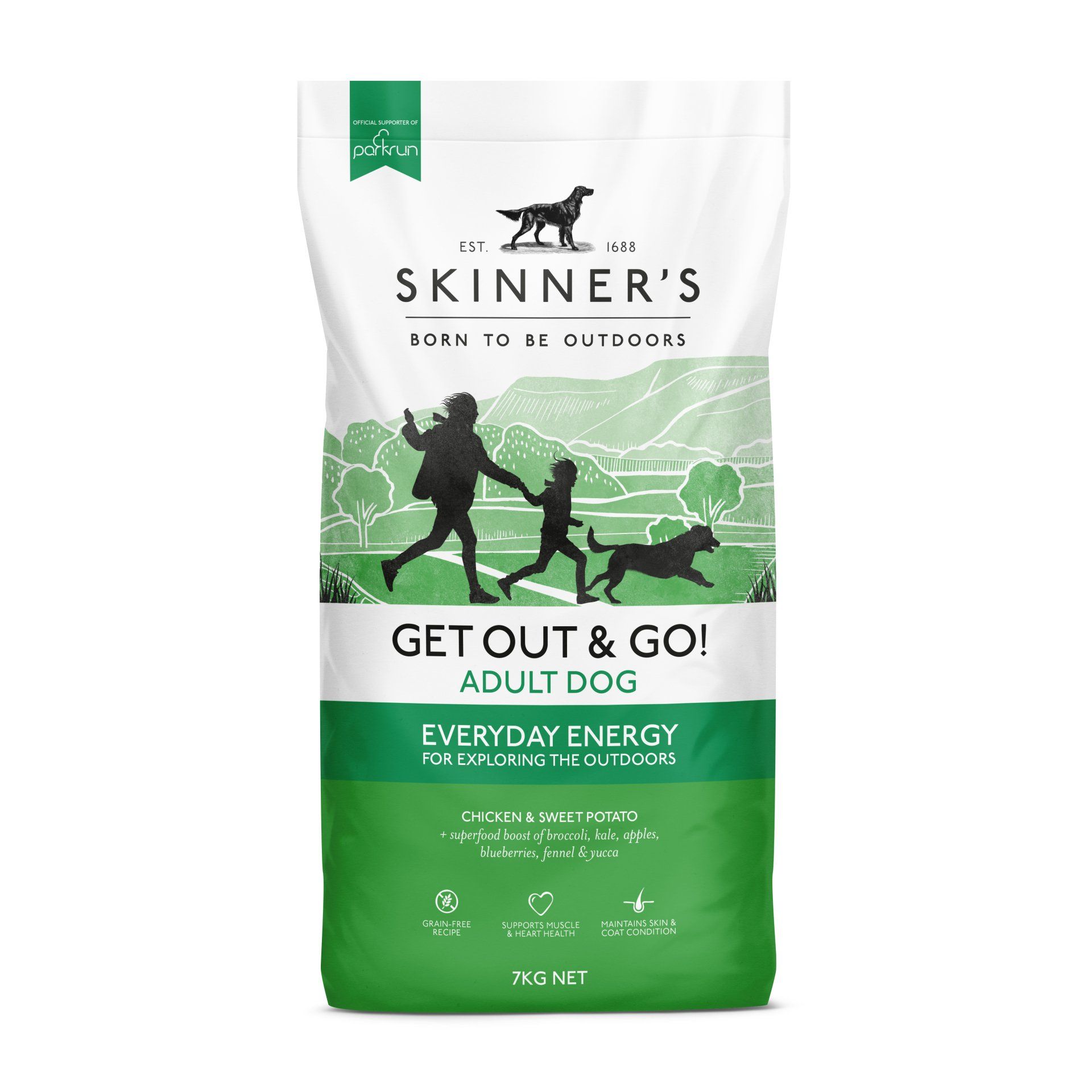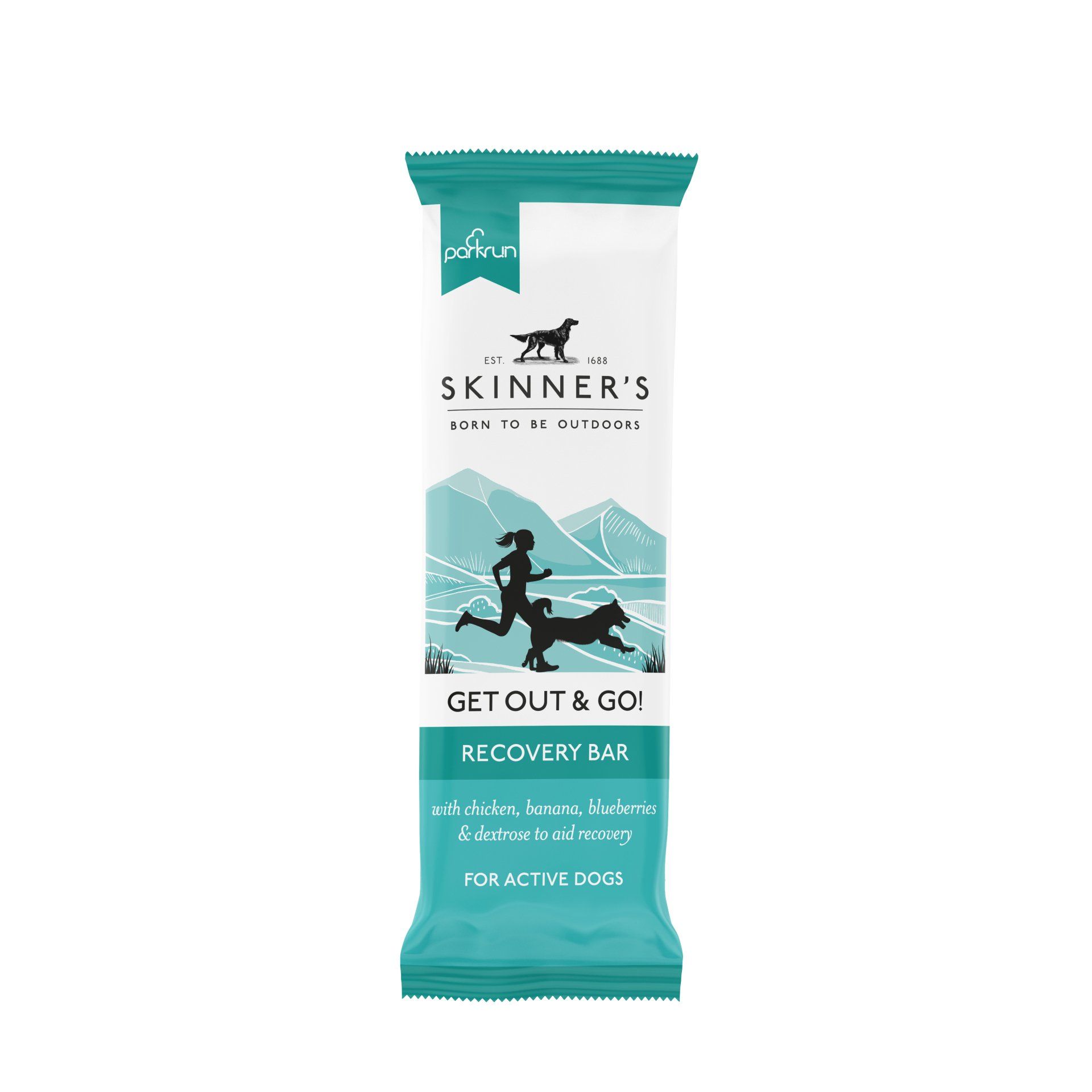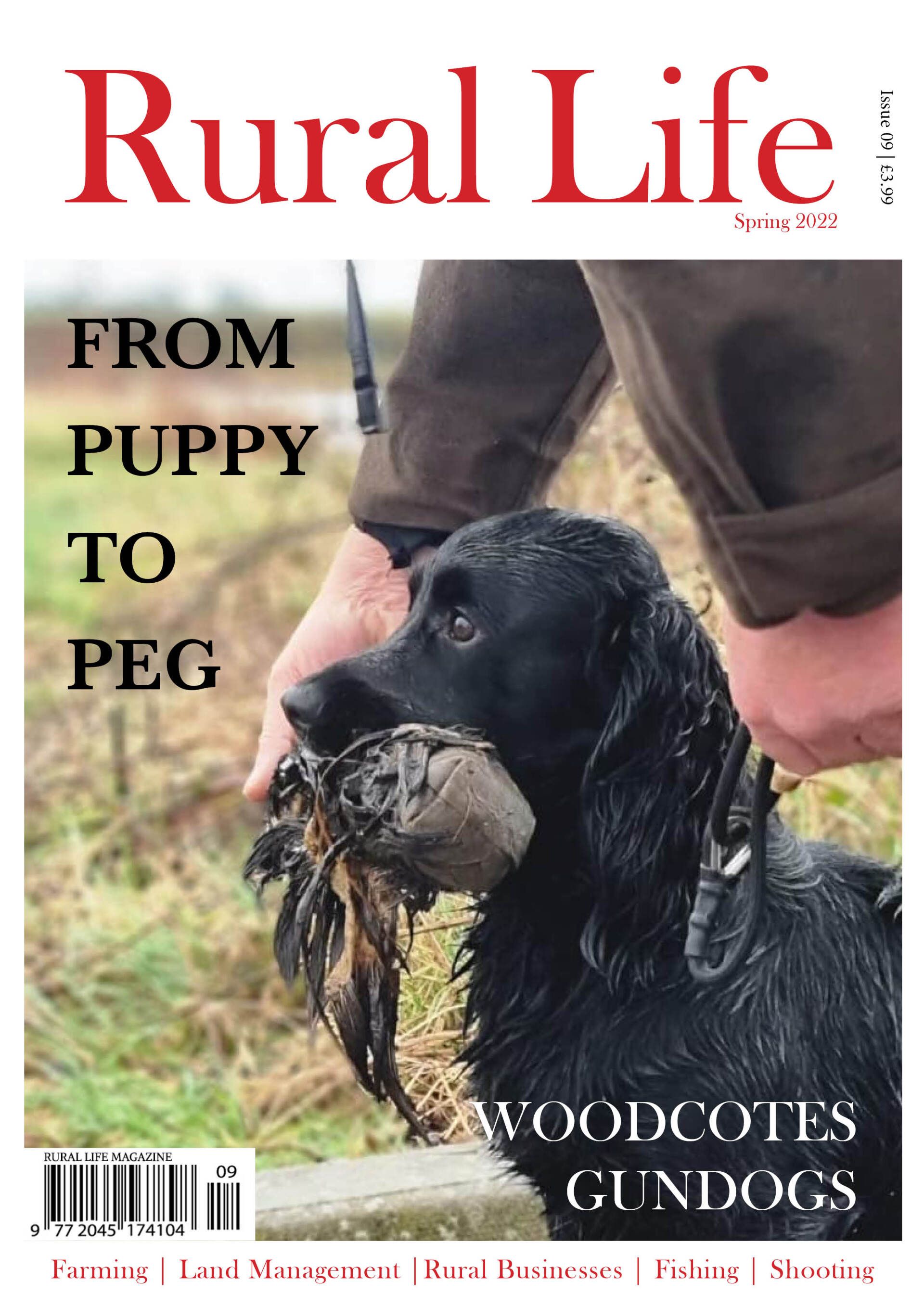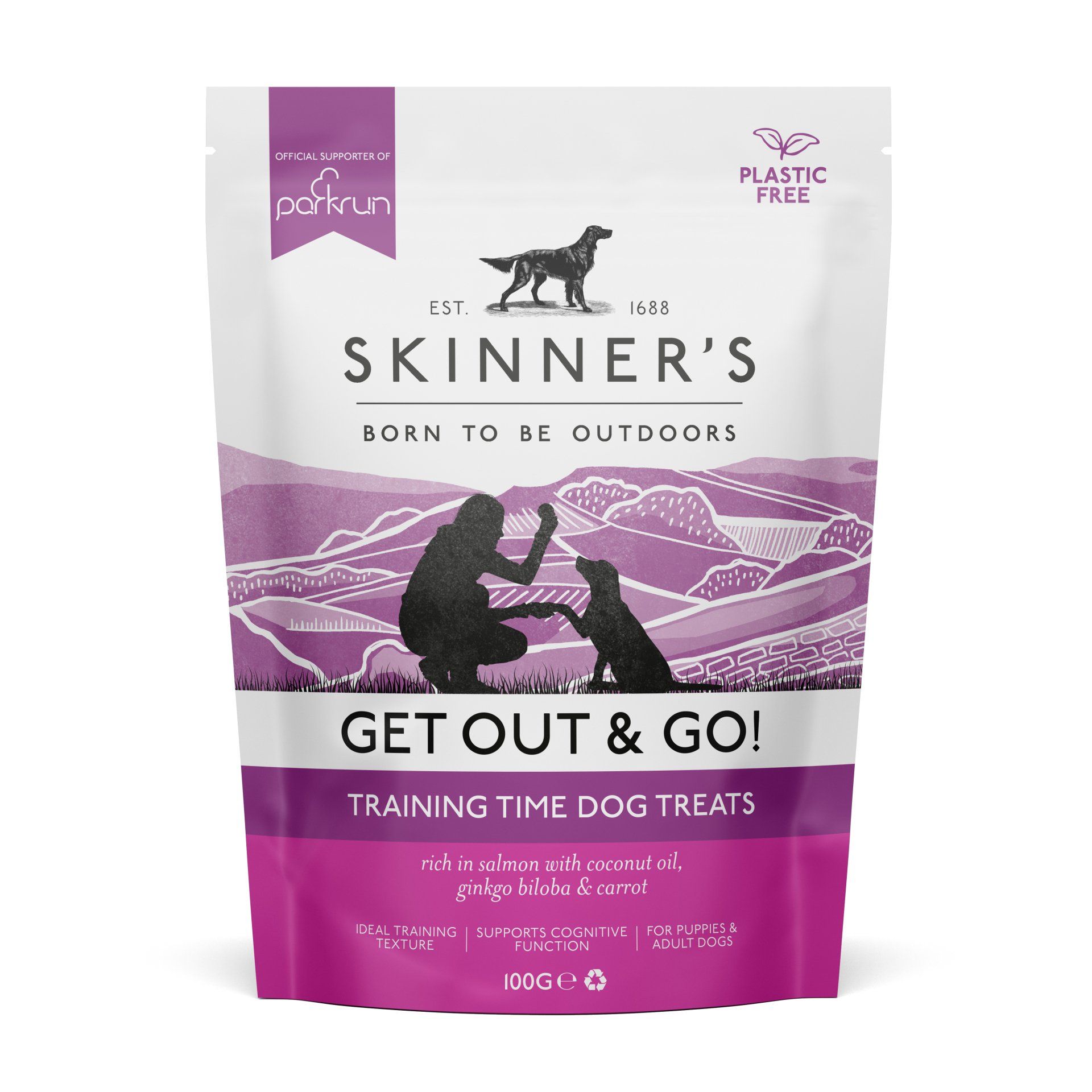NUTRITION FOR DOGS: BY ZOE RUSSELL, NUTRITIONAL OFFICER FOR SKINNER’S

There are now 12 Million dogs in the UK, but despite this, one of the most common questions dog owners ask is “What should I feed my dog?”, indicating a huge gap in knowledge on canine nutrition. Feeding your dog an appropriate amount of nutrients in a well-balanced diet is crucial to its overall health and wellbeing. To understand what to feed your dog, you need to know what the nutritional requirements of dogs are and how these help in their overall growth and development.
Similarly to us, the 6 basic nutrients are water, proteins, fats, carbohydrates, minerals, and vitamins- these are required as part of a dog’s regular diet and are involved in all the basic functions of the body, to support your dog through a long, healthy, happy life. Feeding your dog a quality, complete diet can help to support growth, development and activity levels whilst also enhancing performance and recovery levels in certain situations.
With so many different dog foods out there, it can be difficult to know what the best option for your dog is. Heritage dog food brand Skinner’s are passionate about producing and developing “good nutrition” for your dog, from diet formulation to the choice of raw ingredients used, considerations about sustainability and waste generation, right through to advice for individual owners about their own dog’s nutrition. At Skinner’s, we produce a range of complete diets suitable for active and working dogs, including those with specific sensitivities and other lifestyle requirements, whilst keeping abreast of current nutritional science.

For dogs who are regularly exercising at a high energy output, a more nutrient-dense dog food can be beneficial. These foods can provide a good source of dietary fat for longer periods of activity, a source of protein to support muscle integrity and a source of carbohydrates for short periods of intense activity, as well as key vitamins and minerals to ensure the diet is balanced.
To further ‘boost’ the nutritional impact of these diets, adding superfood ingredients can have a whole range of different benefits for your dog when included in their diet. These ingredients can help to support immune health, provide a source of essential vitamins and minerals, support digestive function, and help with joint integrity (just to name a few benefits!).
Fruits such as blueberries, banana, mango and apple in Skinner’s recovery bar, are used in our recipe as these fruits naturally contain antioxidants which can help protect against the effects of oxidative damage in the body. In addition, you may have seen our delicious Training Time dog treats contain both salmon meal and salmon oil. Salmon is often regarded as a superfood as it provides a good source of essential omega-3 fatty acids, which can help to support coat, skin and cognitive health. Furthermore, these fatty acids are essential, as they can’t be made in the body so must be supplied in the diet.

Do you need to change a dog’s diet during the winter months?
Winter brings with it shorter days, colder temperatures, and a change in weather. For many dogs, this means less exercise and a drop in their overall energy demands, which can lead to weight gain. To accommodate for this, you may need drop their daily feed intake by around 10-20%, while continually monitoring their weight and condition. However, if you need to feed significantly under the manufacturer’s feeding guidelines to keep the weight off, then it may be beneficial to look for a less energy-dense diet. Furthermore, this is usually the time of year we have lots of delicious food in the house, so don’t be tempted to indulge your dog with treats, titbits, and table scraps.
Meanwhile for working dogs, winter usually means an increased workload as the season is in full swing. If you find your dog is dropping weight and condition on the manufacturer’s recommended amount of food, then you may need to up their intake by 10-20%. However, if you need to feed significantly over the guidelines to maintain a healthy weight and condition, then it may be beneficial moving onto a more energy-dense diet, suited to more active dogs.




